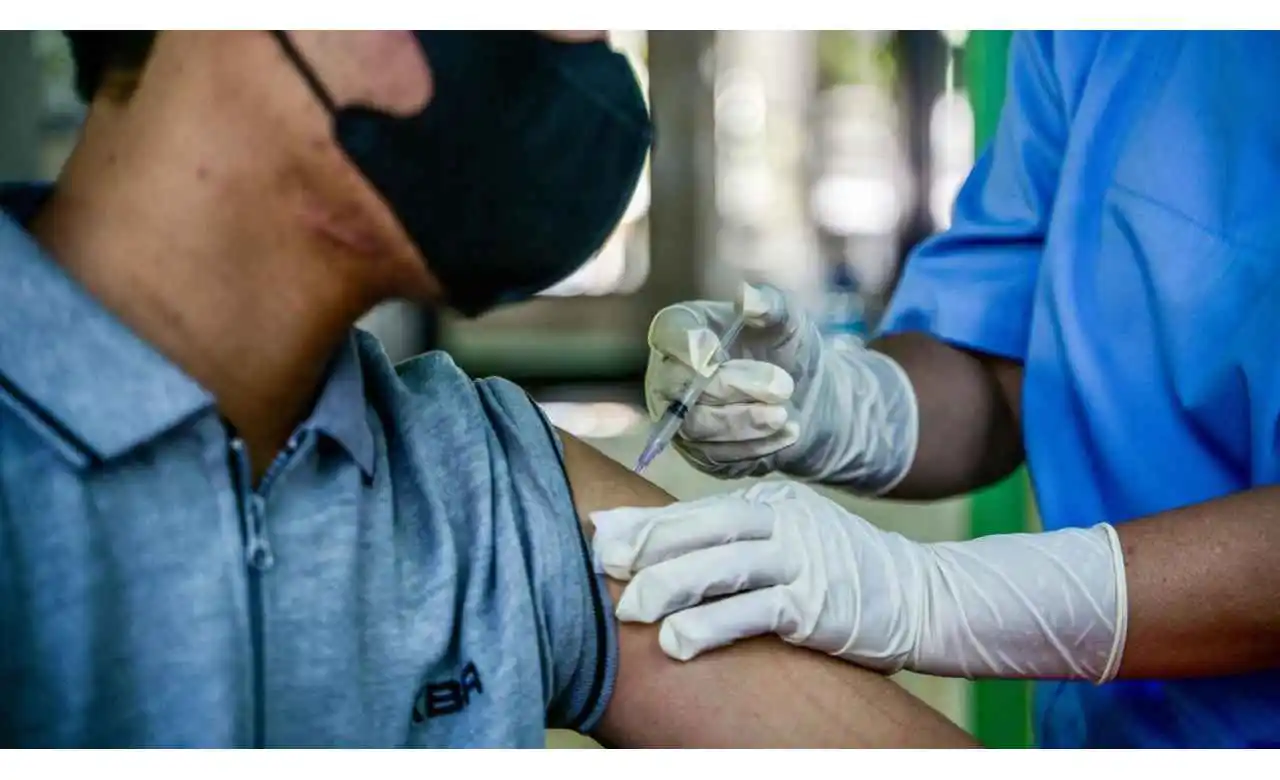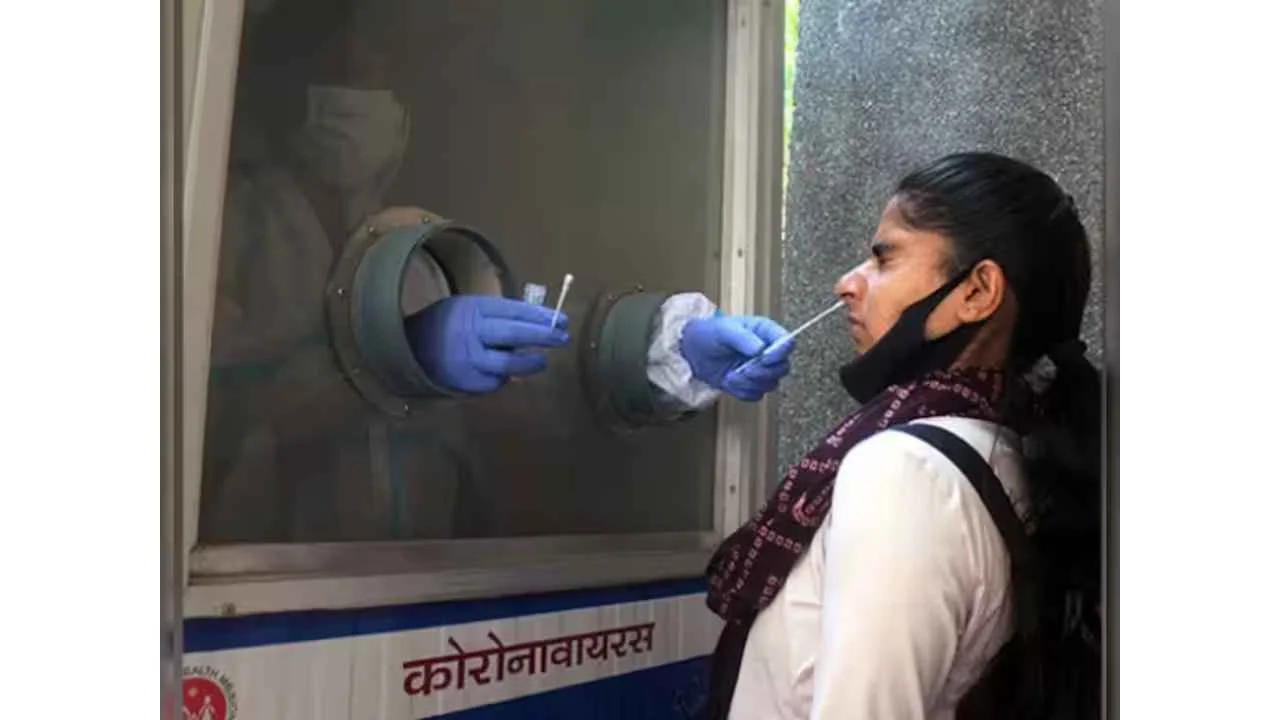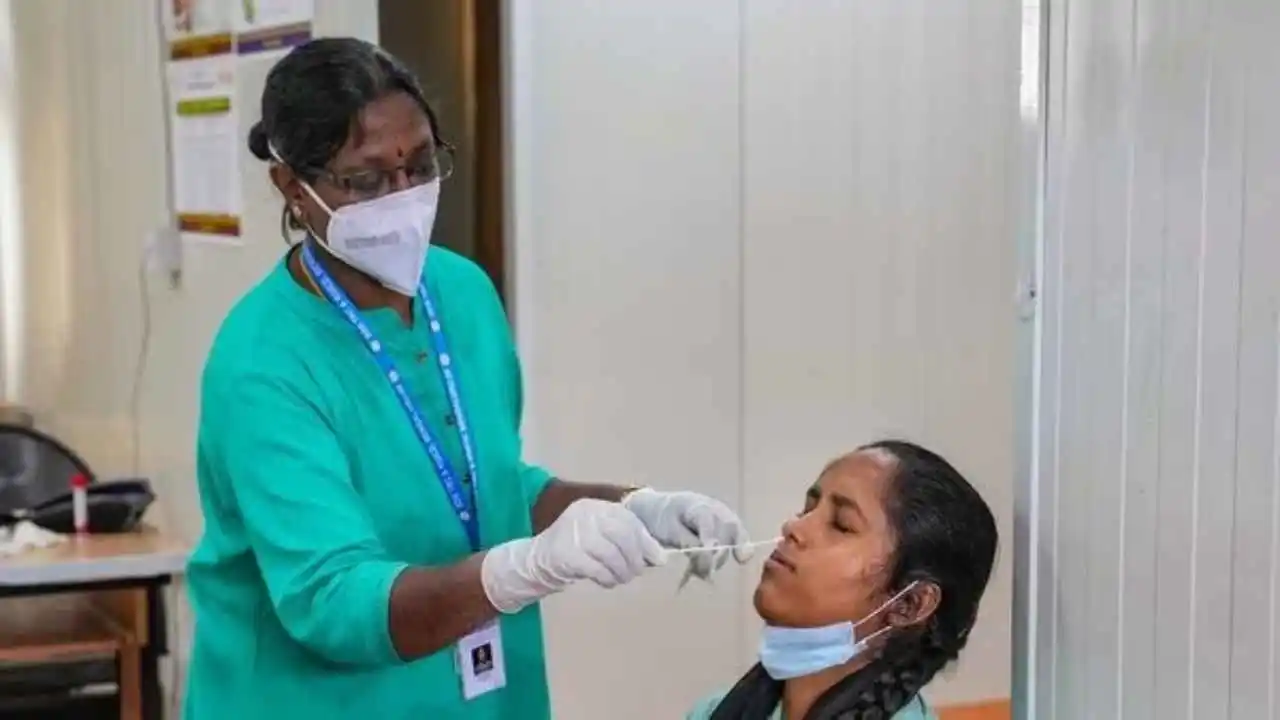Health
Are you an insomniac? THIS deficiency can affect your sleep, here’s all you need to know
Do you know that number of these vitamins may have an impact on our risk of sleep problems including insomnia and sleep apnea? At least two of them appear to be involved in the regulation of our circadian rhythms, which are the 24-hour biorhythms that drive our sleep-wake cycles.

Diet and sleep are well-known to be intertwined. However, we still don’t know nearly enough about how certain foods affect our sleep. In this article, we will tell you about six vitamins that are responsible for how much sleep we receive, as well as how restful and quality sleep we take.
Do you know that number of these vitamins may have an impact on our risk of sleep problems including insomnia and sleep apnea? At least two of them appear to be involved in the regulation of our circadian rhythms, which are the 24-hour biorhythms that drive our sleep-wake cycles.
Diet and supplements play an important role in leveraging a healthy diet to improve sleep. Supplements are also a way to fill the deficiency gaps.
Always check with your doctor when taking a supplement or changing your current medicine or supplement routine. This is not medical advice, but it may clear the way for a discussion with your doctor at your next appointment.
There are many people who are familiar with vitamin D’s function in bone health. But, it is also beneficial for mood regulation, immunological function, and inflammation reduction.
Vitamin D is gaining popularity due to its potential benefits for sleep as well as the sleep effects of vitamin D deficiency. New research is adding to our understanding of how this vitamin or its lack may impair our nocturnal sleep.
How vitamin deficiency affects sleep quality and quantity?
An increasing body of evidence indicates that vitamin D influences both the amount and quality of sleep we obtain. A new study discovered a link between vitamin D insufficiency and short sleep duration. According to this study, the connection between poor sleep and a lack of Vitamin D is especially evident in persons aged 50 and above.
More than half of the individuals in this study were vitamin D deficient. This is consistent with recent studies indicating that the majority may be deficient in vitamin D. In 2018, researchers at China’s Qingdao University examined the findings of many studies on vitamin D’s involvement in sleep. Their research found substantial links between low vitamin D levels and a lack of sleep. They also discovered that low vitamin D levels were linked to poor sleep quality.
How sleep apnea is connected to vitamin deficiency?
Several recent research has found a link between a lack of vitamin D and an increased risk of sleep apnea. A lack of vitamin D may also have an impact on the severity of sleep apnea, with lower D levels being related to more severe cases of OSA in numerous recent investigations.
On the subject of sleep apnea, there is some good news. According to research, long-term usage of the conventional treatment for sleep apnea, CPAP, or continuous, positive airway pressure, has been related to a considerable increase in vitamin D levels, as well as significant improvements in sleep apnea symptoms.
Vitamin D deficiency is defined as a lack of vitamin D in the body. Vitamin D is exceptional because it is produced by your skin when your body utilizes sunshine. Fair-skinned people and those under the age of 50 convert sunlight into vitamin D far more efficiently than darker-skinned people.
What are the health effetcs of vitamin D deficiency?
One can suffer from diabetes if he or she has vitamin D deficiency.
- Vitamin D deficiency can also cause heart disease and high blood pressure.
- Lack of vitamins can also cause immune system disorders and infections in your body.
- Falls in order person.
- Also cause cancer, such as colon, breast cancer and prostate.
What are the sources of vitamin D?
Vitamins can be found in several things and several ways. Here are some of the ways, in which you can include vitamins.
- For vitamin D, you should expose your body to the sun for about 15 to 20 minutes. You can repeat this again, at least 3 days per week is generally sufficient.
- You can intake fruits and vegetables which have high sources of vitamins, like orange, salmon fish, herring and sardines fishes, egg yolk, mushroom, etc.
- You can also take nutritional supplements, additionally.
How Vitamin E helps in insomnia?
Vitamin E is a potent antioxidant that aids in the maintenance of good cell function and the protection of cells from injury. It also helps to keep the immune system in good shape. The antioxidant properties of vitamin E may also aid sleep and sleep-related health issues.
Health
India registers 313 new Covid cases, active cases reach 2,041, 3 deaths recorded in last 24 hours
The currently available data suggests that the JN.1 variant is neither leading to an exponential rise in the new cases nor a rise in the hospitalization and mortality.

India saw a single-day rise of 313 new Covid cases, while the active caseload has declined to 2,041, the health ministry said on Saturday. Three deaths: two from Karnataka and one from Maharashtra were reported in the last 24 hours.
According to the ministry website, the number of active cases in the country stood at 2,331 on Friday. The number of cases of Covid had dropped to double digits till December 5, but it began to start increasing after the emergence of a new variant and cold weather conditions.
According to reports after December 5, the highest single day rise of 841new cases was reported on December 31, 2023, which is 0.2% of the peak cases reported in May 2021. Of the total active cases, a large majority of these (around 92%) are recovering under home isolation.
The currently available data suggests that the JN.1 variant is neither leading to an exponential rise in the new cases nor a rise in the hospitalization and mortality. India has witnessed three waves of Covid in the past with its peak incidence of daily new cases and deaths being reported during the delta wave in April June 2021.
At its peak, 414,188 new cases and 3915 deaths were reported on May 7, 2021. Since the pandemic started in early 2020, there have have been 4.5 crore people who have got infected and this has resulted in the death of 5.3 lakh persons in a total time span of four years.
According to the ministry data, the total number of persons who have recuperated from the disease are 4.4 crore with total recovery rate recorded is 98.81%. A total number of 220.67 crore doses of Covid vaccines have been administered in India so far.
Health
India registers 605 new COVID-19 cases and 4 deaths in last 24 hours
The number of people who have recovered from the disease has gone up to 4,44,81,341, an increase of 648 since Sunday morning. In Kerala a 70 year-old male with chronic obstructive pulmonary disease (COPD) and 81year-old male with T2DM and HTN, and in Karnataka, a 48 year old male with CA and TB died, while one person in Tripura succumbed to COVID.

India recorded 605 fresh COVID-19 cases and four deaths in the last 24 hours. The active cases have increased to 4002, while India’s overall COVID case tally stands at over 4.5 crore (4,50,18,792). The death toll was recorded at 5,33,396 with four new deaths – two from Kerala and one each in Karnataka and Tripura – reported in the last 24 hours, the data updated at 8am stated.
The number of people who have recovered from the disease has gone up to 4,44,81,341, an increase of 648 since Sunday morning. In Kerala a 70 year-old male with chronic obstructive pulmonary disease (COPD) and 81year-old male with T2DM and HTN, and in Karnataka, a 48 year old male with CA and TB died, while one person in Tripura succumbed to COVID.
The Indian Council of Medical Research (ICMR) reported that 11,838 doses of the vaccine had been administered in the country till January 7. The data is a compilation of the Integrated Disease Surveillance Programme (National Centre for Disease Control), media bulletins and websites of various states at 8am on January 4.
As the winter season sets in, health experts are highlighting a sudden surge in viral infections, influenza, and COVID-19 cases. Dr Nikhil Modi, a senior pulmonologist at Indraprastha Apollo Hospital, pointed out that the decrease in temperature leads to increase in moisture in the air, low wind speed and also causes an increase in pollution levels. This contributes highly to various infections.
Due to the decrease in temperature the fog combines with the pollution in the air which further leads to the formation of smog. This condition of the atmosphere can cause different types of infections and difficulty in breathing. Both the state and the central government are keeping a close watch on the new Omicron Subvariant JN.1. J.N.1 is a Variant of Interest (VOI) which is under intense scientific scrutiny.
Health
India records 774 new Covid-19 cases, 2 deaths in 24 hours
The number of daily cases was in double digits till December 5 but it started to rise again amid cold weather conditions and after the emergence of new Covid-19 variant, JN.1.

India on Saturday had a single-day rise of 774 Covid cases while the number of active cases stood at 4,187, the Union health ministry said. As many as two deaths – one each from Tamil Nadu and Gujarat were reported in a span of 24 hours. Of the 4,187 active cases, the majority (over 92%) are recovering under home isolation.
The number of daily cases was in double digits till December 5 but it started to rise again amid cold weather conditions and after the emergence of new Covid-19 variant, JN.1. The central government has asked the state government and union territories to maintain a constant vigil amid an upward trend in the number of Covid-cases and the detection of the JN.1 sub variant in the country.
According to reports after December 5, the highest single-day rise of 841 cases was reported on December 31, 2023, which was 0.2% of the peak cases reported in May 2021. A health official said that the JN.1 variant is neither leading to an exponential rise in new cases nor a surge in hospitalisation and mortality in the country.
The Karnataka government has made the Covid test mandatory for those with Influenza like illness (ILI) or Severe Acute Respiratory Illness (SARI). Karnataka Health Minister Dinesh Gundu Rao said more than 7000 tests are being done every day and the COVID positivity rate is 3.82%. The positivity rate in the state has not come down yet.
He said those with symptoms are being monitored and tested. Those who are in isolation at home have been told to take extra care. He added it is expected that the trend of decreasing Covid cases may start next week in Karnataka. India has witnessed three waves of Covid-19 in the past with the peak incidence of daily cases and deaths being reported during the Delta wave during April-June 2021. At its peak 4,14,188 cases and 3915 deaths were reported on May 7, 2021.
-

 2024 Lok Sabha Elections11 hours ago
2024 Lok Sabha Elections11 hours agoRahul Gandhi clarifies on wealth survey remark, says aim is to identify injustice
-

 Cricket news12 hours ago
Cricket news12 hours agoIPL 2024: Marcus Stoinis hits first IPL century as Lucknow Super Giants beat Chennai Super Kings by 6 wickets
-

 India News10 hours ago
India News10 hours agoRamdev, Balkrishna publish bigger apology in newspapers after Supreme Court’s rap
-

 Trending9 hours ago
Trending9 hours agoA waiter’s life: Social media users go emotional on watching viral video
-

 2024 Lok Sabha Elections7 hours ago
2024 Lok Sabha Elections7 hours agoPM Narendra Modi slams Congress over Sam Pitroda’s inheritance tax remarks, accuses Congress of intending to impose higher taxes
-

 2024 Lok Sabha Elections5 hours ago
2024 Lok Sabha Elections5 hours agoNitin Gadkari says he’s better now after collapsing at election rally in Maharashtra’s Yavatmal
-

 2024 Lok Sabha Elections4 hours ago
2024 Lok Sabha Elections4 hours agoMallikarjun Kharge vows to continue politics till his last breath to defeat BJP
-

 Entertainment6 hours ago
Entertainment6 hours agoMadhuri Dixit, Karisma Kapoor recreate Dil To Pagal Hai dance battle on Dance Deewane








